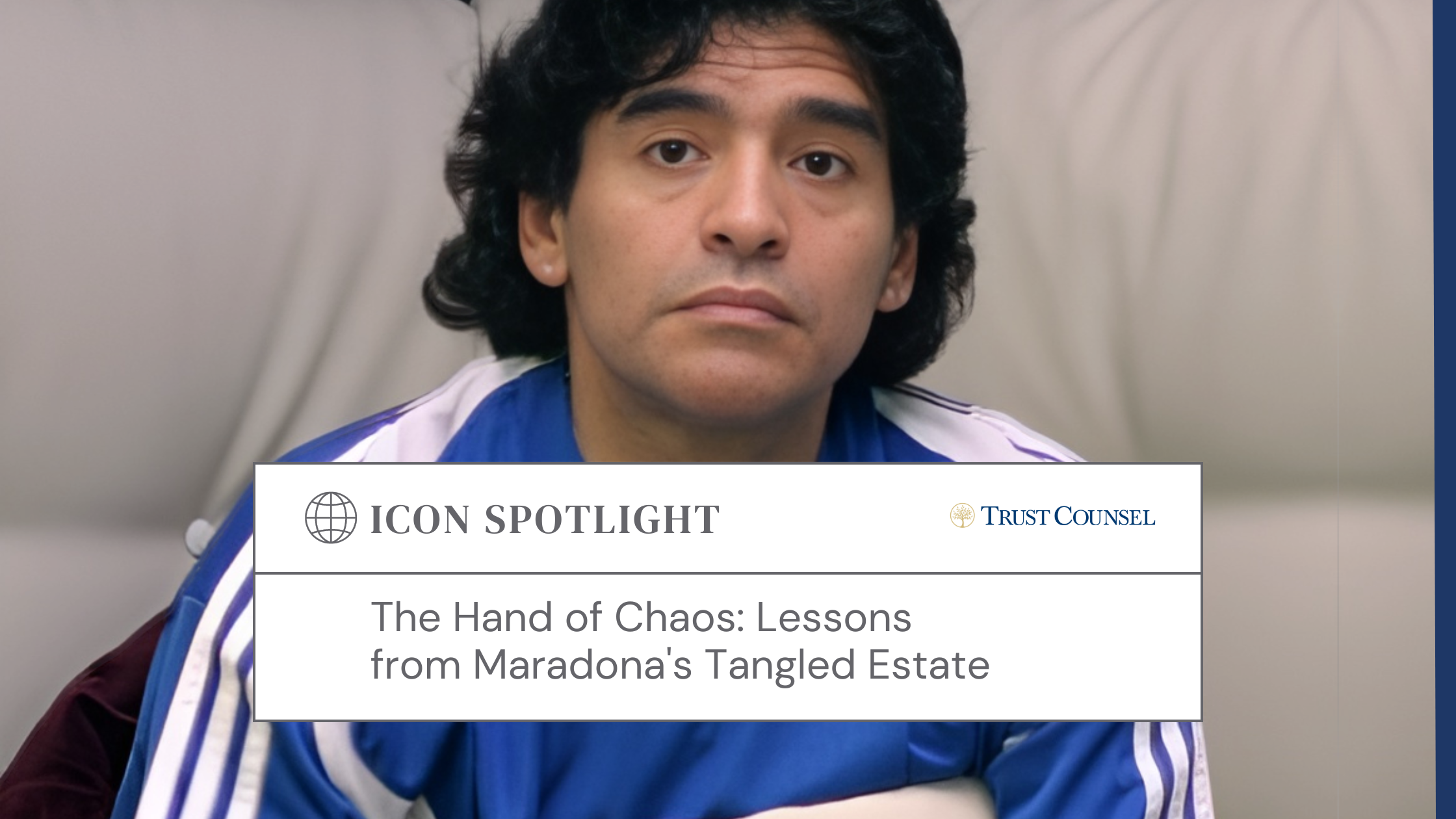It may seem like a distant memory due to more recent events, a pandemic, and a presidential election, but it has only been ONE year since NBA legend Kobe Bryant and his 13-year-old daughter, Gianna (“Gigi”), tragically passed away in a helicopter crash in Calabasas, California. As I have done in every edition of this newsletter since 2015, after a celebrity passes away, I analyze their estate planning, or lack thereof, and use the information available to help educate others – celebrity or not – that estate planning is vital for people of all ages. Kobe’s untimely death further demonstrates the need to plan ahead.
At the time, little was known about the estate planning strategies that Kobe had in place to protect and preserve his estimated $600 million estate for his wife, Vanessa, and three surviving daughters, Natalia, 17, Bianka, 3, and Capri, 1.
Since then, court filings made by Kobe’s widow have shed light on both the successes and failures of Kobe’s estate planning efforts. On the positive side, Kobe created an extensive estate plan, which included the Kobe Bryant Trust to protect his assets, reduce estate-tax liability, and pass on his wealth to his family.
Although the contents of Kobe’s trust remain private, Los Angeles County probate court documents provide a summary of its terms. Upon Kobe’s death, a trust was set up to allow Vanessa and her daughters to draw from the principal and income of the trust’s assets during Vanessa’s lifetime, with the remainder going to their children upon Vanessa’s death. While his trust lists Vanessa and his oldest daughters Natalia, Gianna (who died in the crash with her father), and Bianka as beneficiaries, Kobe did not add his youngest daughter, Capri, who was born just six months before his death. Reportedly, Kobe and his lawyers simply never got around to adding Capri to the trust before his untimely death at age 41.
An Expensive Oversight
Seeking to fix this oversight, Vanessa Bryant and Kobe’s best friend Robert Pelinka, Jr. – who were named Co-Trustees – petitioned the Los Angeles probate court to modify the trust by adding Capri as a beneficiary with equal rights as her sisters. Unless the court agrees with the petition, Capri will be ineligible to inherit her share of the family estate held in the trust, which could amount to wealth and assets worth hundreds of millions of dollars.
According to the petition, the trust was created in 2003 after the birth of the couple’s first child, Natalia, and its intent was to provide for the support of Vanessa and all of the couple’s children following Kobe’s death. As evidence of this intent, the petition points out the fact that Kobe amended the trust to add daughters Gigi and Bianka after they were born.
Although it is likely the court will agree to the trust’s modification to include Capri, the fact remains that Kobe and his legal team made a major error by not updating his plan immediately following her birth. This mistake has undoubtedly cost Vanessa not only hefty sums of money in lawyer fees and court costs, but it also eliminated the trust’s biggest benefits by failing to keep Kobe’s surviving family members out of court and conflict, as well as exposing the estate’s details to the public.
The most unfortunate part of the whole situation is just how easily this oversight could have been avoided.
Stay up to Date
It is a popular myth that estate planning is simply a matter of creating the proper documents, filing those documents away for safekeeping, and only revisiting them upon the creator’s incapacity or death. This is far from the truth. The oversight by Kobe’s lawyers illustrates why most plans, even those created by multi-millionaires, fail to keep families out of court and out of conflict when it is too late. While Kobe’s family can easily absorb these costs, your family probably cannot without significant impact.
As Kobe’s case shows, even the most well-intentioned plan can prove ineffective if it is not regularly updated. Estate planning is not a one-and-done type of deal—your plan must continuously evolve to keep pace with changes in your family structure, the legal landscape, your assets, and your life goals.
Unfortunately, this kind of thing happens all the time. In fact, outside of not creating any estate plan at all, one of the most common planning mistakes is when I get called by the loved ones of someone who has become incapacitated or died with a plan that no longer works because it has not been updated. Yet, by the time they contact me, it is too late.
I recommend you review your plan annually to make sure it is up to date and immediately modify your plan following events like births, deaths, divorce, and inheritances. I also recommend you create, and regularly update, an inventory of all your assets, including digital property like cryptocurrency, photos, videos, and social media accounts. By doing this, your family will know what you have and how to find everything if something happens to you, and none of your assets will end up in our state’s Department of Unclaimed Property.
The Right Attorney Can Help
Here at the firm we have built-in systems and processes to ensure your plan is always up to date, so you will not need to worry about forgetting anything. I will not only help you create a comprehensive asset inventory, I will make sure it stays regularly updated throughout your lifetime. With the COVID-19 pandemic still raging, creating such an inventory is something you should take care of immediately to ensure your loved one’s know what you have, where it is, and how to access it if something happens to you.
As Kobe’s sad story illustrates, death and illness can strike at any time, and even the most extensive estate plan can fail without the proper systems in place to keep it updated. To ensure your plan works as intended for the ones you love most, schedule an initial consultation today to discuss your current plan.





